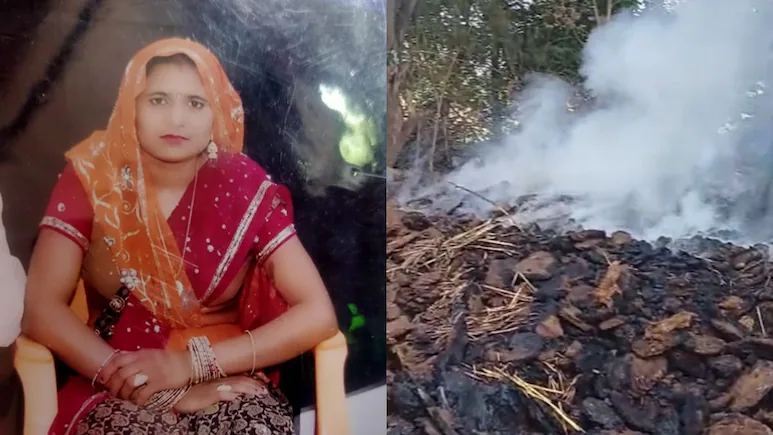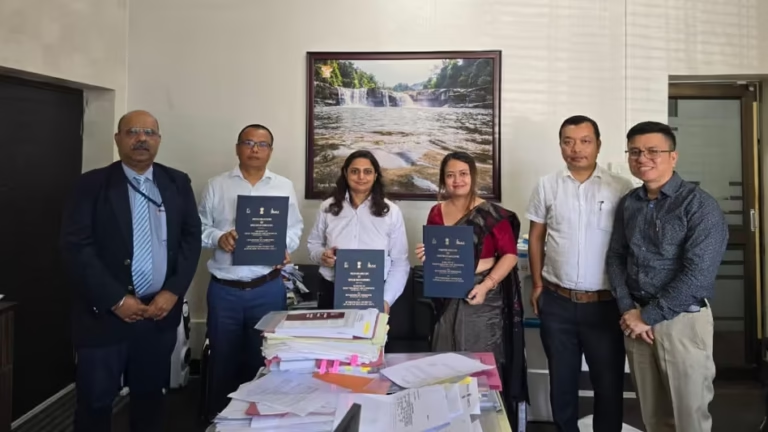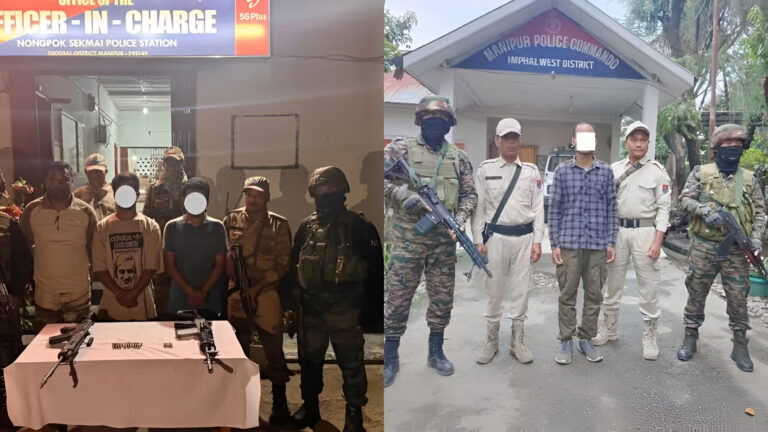Rajasthan Woman Brutally Killed Over Infertility, Half-Burnt Body Found by Police
A 42-year-old woman named Sarla was found dead under suspicious circumstances in Kakra village, Deeg district, Rajasthan. Villagers say her in-laws tried to burn her body and present it as an accidental household fire; police intervened before the cremation and took the half-burnt body to Deeg Hospital for autopsy. Sarla’s brother has accused her husband, Ashok, and his family of repeated harassment because she could not conceive. An investigation is underway and additional police forces have been deployed in the village.
According to police and family accounts reported by NDTV, the incident occurred in Kakra village under Khoh police station in Deeg district. Locals told police that Sarla was found dead and that her in-laws tried to burn the body in what they claimed was a household fire — a supposed accident. But villagers were suspicious and alerted police before the cremation could take place. When officers arrived, they recovered the half-burnt body and placed it in the mortuary of Deeg Hospital. Police have deployed additional forces in the village and launched an investigation.
Sarla — originally from Raunija (under the Nagar police station area) — had been married in 2005 to Ashok, a resident of Kakra. She reportedly had no children. Her brother, Vikrant, told reporters that Ashok frequently beat and harassed Sarla because she could not conceive. He alleged that family interventions had been attempted earlier but the abuse resumed after short patches of calm. Family members reached the hospital and accused the husband and his family of murdering Sarla. Police confirm they are investigating the matter.
Local reporting (Dainik Bhaskar and others) added alarming details: some accounts say Sarla was set on fire on a pile of cow-dung cakes near her house and that when police tried to stop a hurried cremation, villagers attacked officers — prompting reinforcements and a larger police presence. Media indicates the husband and his family fled the village after the incident. These locally sourced details show an intensely fraught scene and a community reaction that mixed suspicion, anger, and chaos.
The family’s allegations — what the victim’s relatives say
Sarla’s brother, Vikrant, has alleged sustained harassment by her husband Ashok, linked explicitly to her inability to have children. He said Ashok frequently beat and harassed Sarla; family members claim they had intervened multiple times but the abuse resumed. After the incident, Vikrant accused Ashok and his family of murdering Sarla, saying he found out only when he rushed to Kakra and learned the police had already taken her body to Deeg Hospital.
These are grave allegations. If proved, they would fall into the category of cruelty by husband or his relatives, which is criminal under Indian law (see Section 498A of the IPC) and potentially other offences depending on forensic findings. We’ll unpack the legal framework a little later. For now, note that family testimony and early evidence often shape the direction of investigations — but prosecutors will need corroboration through medical reports, witness statements, and forensic examinations.
FAQs
Q1: Who was the woman found dead in Rajasthan and where did this happen?
A1: The victim has been named as Sarla. She was found dead in Kakra village, Deeg district, Rajasthan — and the half-burnt body was recovered and taken to Deeg Hospital. Villagers told police the in-laws tried to burn the body to make it look like an accidental fire.
Q2: What have Sarla’s relatives said about the cause of her death?
A2: Sarla’s brother, Vikrant, alleged that her husband Ashok had frequently harassed and beaten her because she was unable to conceive, and he accused the husband and his family of murdering her. These are allegations under investigation by police.
Q3: What laws can be used if the husband or in-laws are found responsible?
A3: Possible provisions include Section 498A IPC (cruelty by husband or relatives) and, where applicable, charges under sections related to homicide or murder. Civil protections are available under the Protection of Women from Domestic Violence Act, 2005, which offers protection orders, monetary relief, and shelter options.
Q4: Is violence against infertile women a known problem in India?
A4: Yes. Research shows infertile women face higher risk of intimate partner violence and social stigma in pronatalist societies. Studies and public health briefs document increased vulnerability and the need for targeted support services.
Q5: How can local communities help prevent similar tragedies?
A5: Communities can: encourage early reporting to police, resist vigilante or hush-up reactions, provide social support to couples dealing with infertility, promote reproductive health services and counselling, and work with local NGOs and panchayats to protect vulnerable women. Public education to dismantle the stigma around infertility is essential.



